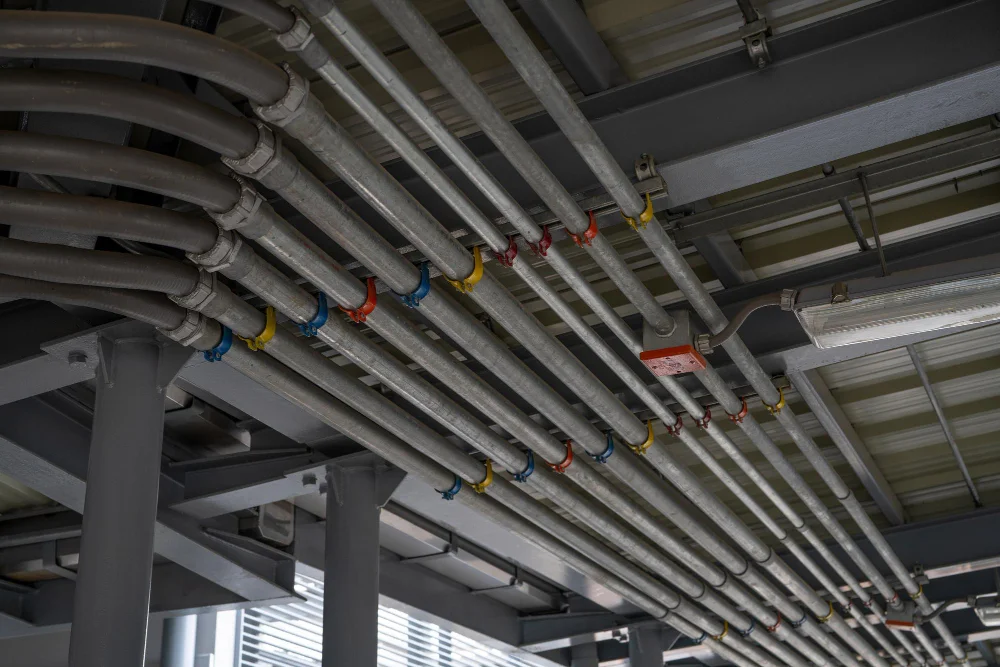Exploring the Diversity of Electrical Conduits

Exploring the Diversity of Electrical Conduits
Electricity has transformed numerous aspects of our lives, from cooking to transportation and telecommunications. Behind every successful electrical system lies a crucial element: electrical conduit. In this comprehensive guide, we will delve into the significance of electrical conduit and how it can optimize your electrical installation projects.
Unveiling Electrical Conduit's Purpose
Electrical conduit acts as a protective tube for safeguarding electrical wires against various forms of damage. Crafted from materials like metal, plastic, and fiberglass, conduit is an essential component in both residential and commercial electrical installations.
Unleashing the Advantages of Electrical Conduits
The advantages of utilizing electrical conduits are plentiful. Not only do they shield electrical wires from cuts, abrasions, and moisture, but they also serve as a preventive measure against electrical fires. Furthermore, conduit aids in organizing electrical wiring, making troubleshooting more efficient.
Exploring a Multitude of Electrical Conduit Types and Applications
Diverse types of electrical conduits cater to different needs and applications. Here are some commonly used conduit types:
- Rigid Metal Conduit (RMC): Constructed from galvanized steel, RMC is renowned for its strength and durability. It is often employed in outdoor settings and areas susceptible to electrical fires.
- Intermediate Metal Conduit (IMC): IMC, lighter and more flexible than RMC, finds its utility in indoor applications that demand enhanced flexibility.
- Electrical Metallic Tubing (EMT): Known for its thinness and lightness, EMT is crafted from galvanized steel or aluminum. It is an ideal choice for exposed indoor wiring due to its malleability and aesthetically pleasing appearance.
- Flexible Metal Conduit (FMC): FMC boasts exceptional flexibility and is made from stranded copper or aluminum. It is typically utilized in spaces that require numerous bends, such as attics and crawlspaces.
- Liquid-Tight Flexible Metal Conduit (LFMC): LFMC comprises FMC coated with a watertight plastic sheath, making it ideal for outdoor applications prone to water damage.
- Rigid PVC Conduit (PVC): PVC conduit, constructed from lightweight and cost-effective polyvinyl chloride (PVC), is often preferred for underground applications and environments susceptible to corrosion.
- Electrical Non-Metallic Tubing (ENT): ENT, a PVC conduit free from metal components, finds its use in areas prone to electromagnetic interference (EMI).
Selecting the Perfect Electrical Conduit for Your Needs
Choosing the most suitable electrical conduit entails considering several factors such as installation environment, wire type, and budget constraints. By aligning these considerations, you can optimize your electrical installation project effectively.
Alrouf Electrical Accessories Manufacturer: Your Trusted Partner
As a leading manufacturer in the field, Alrouf Electrical Accessories Manufacturer offers a wide array of conduit products, including RMC, IMC, EMT, FMC, LFMC, PVC, and ENT. Our commitment to delivering products of the highest standards ensures your satisfaction.
We hope this comprehensive guide has provided you with valuable insights into the world of electrical conduits and their significance in optimizing your electrical installations. Should you have any queries or require assistance in choosing the ideal conduit for your specific needs, please do not hesitate to contact us. We are delighted to help you every step of the way.








